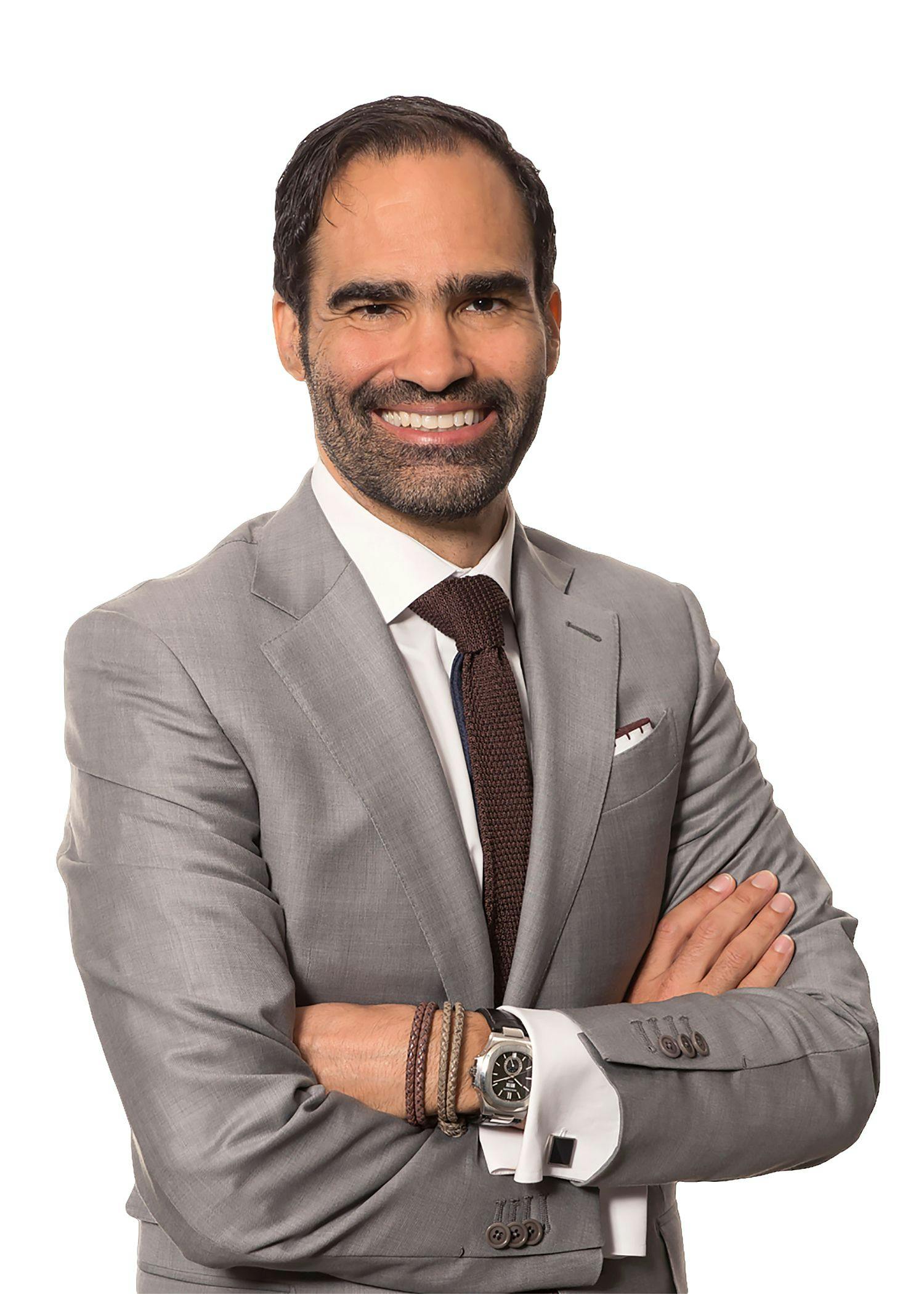Recently I was invited to give an address at an event in Florence, at the first ever chamber of commerce created in Italy.
At the talk, Anna Fendi gave a wonderful keynote on the importance of Italy and its extraordinary craftsmanship and style to the fashion world. She highlighted many of the invaluable achievements of Italian luxury brands all over the world.
Following Fendi’s presentation, I shared my latest insights on affluent Gen Z and how they are reshaping the luxury world with higher expectations than any generation before.
One critical aspect I highlighted, to the surprise of most of the Italian audience, is how much the “Made in Italy” label has been neglected over the years, despite the many achievements of individual Italian brands. I presented the results of an A.I.-powered sentiment analysis among American audiences, which showed that for today’s clients, “Made in Italy” means almost nothing apart from pasta and pizza — not a great association if you want to sell fashion, style, glamour, and beautifully crafted accessories.
In order to be relevant to the next generation of luxury clients, the "Made in Italy” brand needs to transmit a clear, unified message. The same call to action is for individual brands as well. They will need to work much harder on differentiation and brand storytelling to stay leaders in their field because Gen Z simply demands more.
A wonderful discussion followed with Angelo Peppetti, head of the credit and developing unit of the Italian Banking Association. Peppetti underscored the necessity of deploying systematic measures to audit and optimize brands and their messaging. Marco Gianni, the representative of Équité in Italy and a sought-after lawyer to Italian luxury brands, made an impactful case on the need for Italian luxury brands to focus more on brand equity-building through the eyes of clients.
Italian Foreign Minister Antonio Tajani acknowledged the critical importance of these findings with a two-page letter, thanking the organizers for the critical deliberation on the state of Italian luxury and the need to further strengthen the position of Italian brands in the global market.
Still, there is a bigger challenge for many brands independent of their origin. Similar to “Made in Italy,” which has little meaning to the clients of tomorrow, many incumbent luxury and premium brands overly depend on their heritage. While this may have worked well until a few years ago, times have changed as Gen Z value tangible and differentiated experiences and today’s impact more than history.
In the ever-shifting landscape of luxury consumption, a profound transition is underway. For previous generations, luxury was often synonymous with heritage: a brand's historical lineage, its time-honored traditions, and the craftsmanship that underscored its prestige. But with Gen Z there is a seismic shift. For them, the allure of luxury lies more in the realm of unique and personal experiences relevant in the now than past milestones and achievements. Heritage can still be a value driver, but only if heritage is perceived to be a promise of the future.
For Gen Z, the allure of luxury lies more in the realm of unique and personal experiences relevant in the now than past milestones and achievements.
Many of today's brands focus on heritage only with ever-repeating reinterpretations of the trove of the brand archives — which carries limited value for clients. Unsurprisingly, many luxury brands face significant headwinds and, even with one or two lucky seasons, fundamentally underperform in the long run.

As a result, many global brands have neglected to create a distinct, ownable, inspiring, and relevant story that excites current clients and has the power to create desirability for the next generation. And this is fatal, as so many legacy brands are sensing already in their numbers: Growth is below expectations, pricing power is limited, and client acquisition costs have skyrocketed. I know examples where the cost of acquiring clients increased by 3-5x over the last five years, a first sign of more trouble to come.
And some brands even ignore Gen Z. I still often hear brands claiming that “we don’t need to focus on Gen Z yet, they are not our clients.”
But this means gambling on the future by not creating enough relevance for the next generation of consumers. If a brand is not over-indexing today with Gen Z — in other words, having about 20 percent of their revenue with clients who are under 25 — then their future is at risk. By 2030, Gen Z will be the number one client group for luxury and today they are already the most influential. The clock is ticking.
Gen Z, the first digitally (and social media) native and globally connected generation, is rewriting the luxury rulebook. While they respect heritage as a signal of timelessness, they crave experiences that resonate on a personal level, are shareable, and align with their value systems. To them, a brand's history is less compelling than its present narrative and how it can enrich their lives today. This means that luxury brands need to fundamentally shift their strategy to create desirability.
Brands need to focus on authentic storytelling. It’s the number one shortcoming for most companies: In our category audits, 95% of brands lack a differentiating and client-focused story. It’s mostly a story of “we create” and not a story of how the brand can impact the lives of their clients (“Through us, you can...”).

I always like to say, “It’s about them (the clients), not about us.” The catch? The narrative has to be authentic; it can’t be a “made up” marketing story.
This is what so many brands get wrong: They confuse the brand story with an advertising campaign. A campaign should always be an expression of the story, but the story is the combination of rational and emotional expressions of the core values narrated through the eyes of the clients. It’s the hardest task a company can do, which explains why there are so few compelling ones.
Since the narrative needs to be an expression of the brand’s core values, it takes a systematic and structured approach to develop. It’s almost impossible to create just from within the organization as stakeholders typically know too much and may be held back by internal politics. It’s also easy to fall into the trap of doing exactly what successful competitors are doing.
This results in a brand story resembling that of others in the category — a sea of sameness that prevents brands from unlocking their true potential.
Without a distinct story, brand experiences will resemble each other and become a turn-off for Gen Z. And these brand experiences now blur increasingly between digital and physical as virtual and augmented realities have become the playgrounds of young consumers.
Luxury brands must seamlessly integrate digital experiences into their physical worlds and offer immersive brand encounters that this generation can dive into, share, and relive. And they must follow a branded script to add extreme value.
Gen Z clients value uniqueness. They appreciate when luxury brands understand their individuality. This does not work when brands tell the same story. It's a call to action that could not come sooner for many brands.
Named one of the “Global Top Five Luxury Key Opinion Leaders to Watch,” Daniel Langer is the CEO of the global luxury and lifestyle brand strategy and activation firm Équité, the executive professor of luxury strategy and pricing at Pepperdine University in Malibu, California and he is also a professor of luxury at NYU, New York. With his team he supports many of the world’s most iconic luxury brands as well as mid-sized brands and startups in achieving a step-change in brand-positioning, brand-messaging and activation, pricing power, revenue growth, and profitability. Daniel is the author of several best-selling luxury management books in English and Chinese, a sought-after global keynote speaker, and is frequently booked for masterclasses on the future of luxury, disruption, pricing, A.I. and the metaverse in Europe, the USA, Middle East/Africa, and Asia. He is regularly featured as a luxury expert on TV and in the global media including Bloomberg TV, Forbes, The Economist, New York Times, Financial Times, South China Morning Post, Jing Daily, and Wall Street Journal. The Economist calls him the “authority in luxury.” He holds a MBA and a Ph.D. in luxury management and his education includes Harvard Business School. Follow him: LinkedIn: https://www.linkedin.com/in/drlanger, Instagram: @equitebrands /@thedaniellanger



